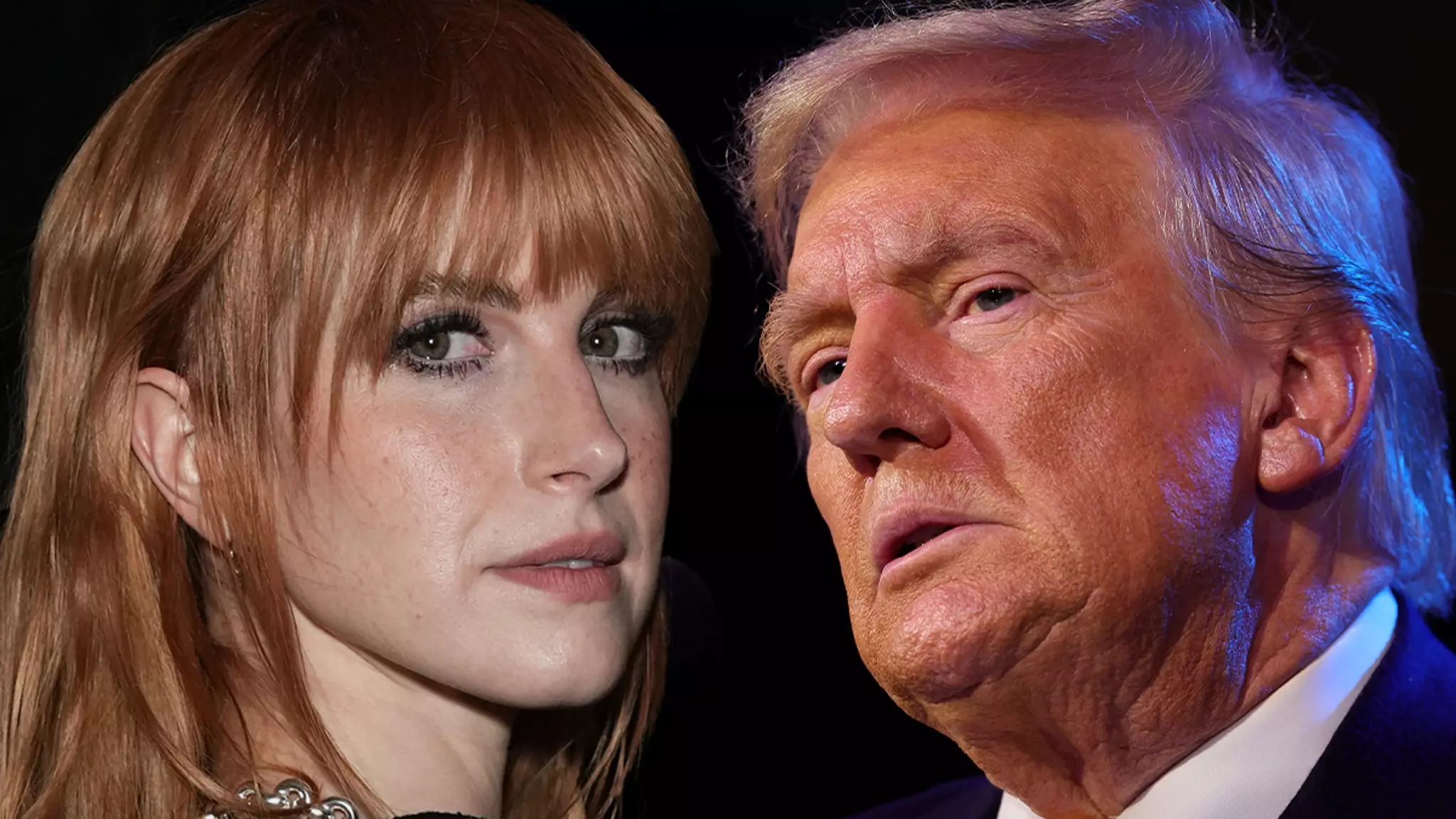In a striking display of political activism, Hayley Williams, the lead vocalist of Paramore, took to the stage at the iHeartRadio Music Festival in Las Vegas to deliver a powerful message against a potential second term for Donald Trump. Known for her evocative lyrics and electrifying performances, Williams utilized her platform in an unconventional fashion, urging the audience—both in-person and online—to take a stand against what she perceives as a looming threat to democracy.
Williams’ statement was clear and compelling; she implied that the stakes of the upcoming election could decisively shape the future of the United States. Following her commentary, she seamlessly transitioned back to performing, showcasing the ability of artists to blend entertainment with significant societal discourse.
A focal point of Williams’ critique was “Project 2025,” a transition strategy reportedly conceived by the Heritage Foundation for Donald Trump, which she characterized as an attempt to impose authoritarian control over marginalized groups. This aspect of her speech resonated with many, sparking conversations about the implications of political movements that seek to strengthen power structures at the expense of diverse communities.
By positioning Project 2025 as a mechanism that could potentially exacerbate inequalities faced by women, the LGBTQ+ community, and people of color, Williams painted a stark picture of the consequences inherent in neglecting civic duty. Her rallying cry for voters to engage in the electoral process underscored the notion that apathy can lead to adverse outcomes, potentially aligning the U.S. with a dictatorship—an idea that many found deeply unsettling.
The responses to Williams’ comments were predictably polarized. Supporters lauded her bravery and commitment to social justice, viewing her stance as an important contribution to the national dialogue. Conversely, critics, particularly from Republican circles, dismissed her remarks as mere regurgitations of leftist rhetoric, attacking her credibility as a serious commentator on political matters. This division illustrates the current climate of political discourse in America, where expressions of opinion often lead to more division rather than constructive conversations.
The tension is further heightened by Trump’s own criticisms of Williams’ friend, Taylor Swift, whom he disparaged after she expressed support for Kamala Harris. This personal connection likely informs Williams’ intense feelings about Trump, showcasing how personal and political realms can intertwine in the lives of public figures.
Ultimately, Williams’ impassioned plea is a reminder that engaging in democracy is not merely a right but a responsibility. As the political landscape grows increasingly fraught with division and strife, artists like Hayley Williams shine a light on the importance of each individual’s voice and vote. By encouraging her fans to take action, she ignites a dialogue about the imperative of civic engagement in the face of potential tyranny.
The urgency conveyed through her performance serves as a wake-up call, illuminating the profound impact that individual decisions can wield in shaping the nation’s future. In such critical times, the blend of art and advocacy becomes not just a performance but a vital component of democratic participation.

Leave a Reply